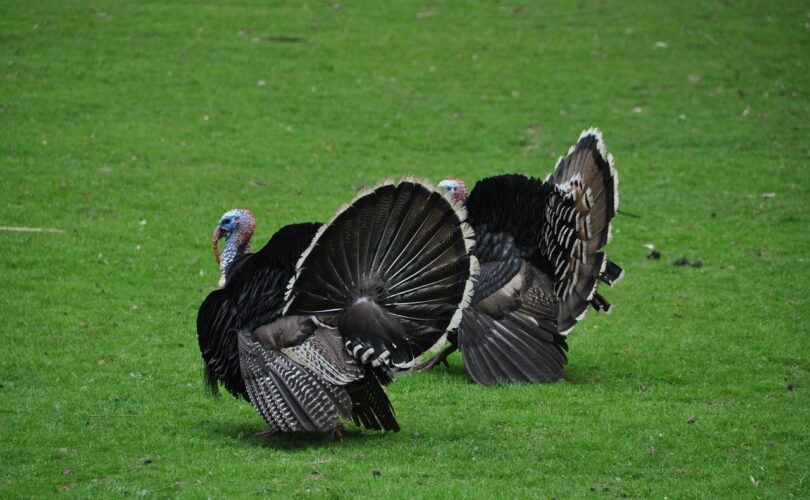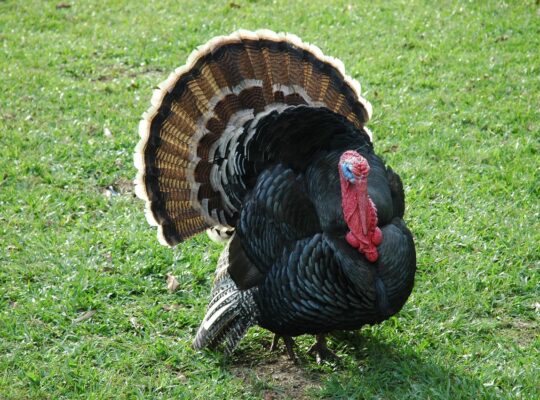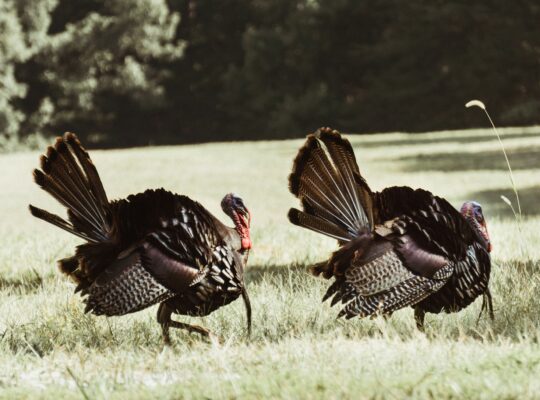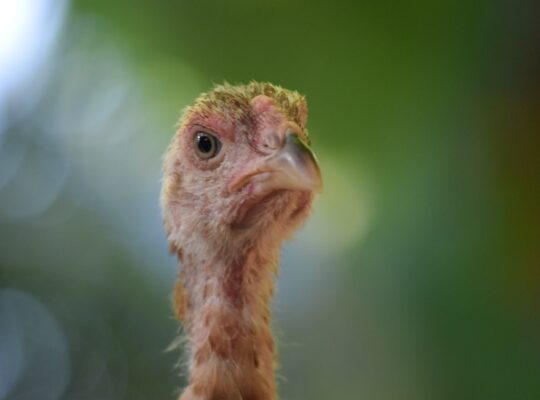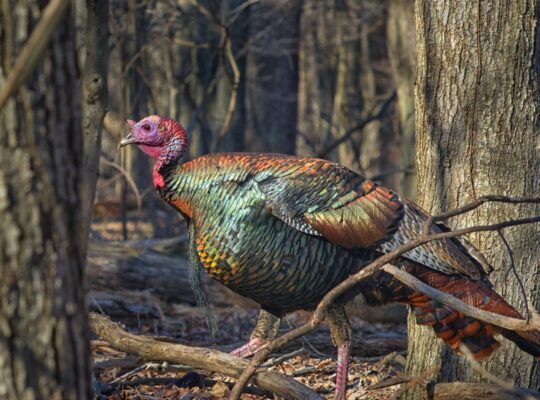Turkeys raised in captivity are omnivores, meaning they consume both plant and animal foods in their diet. Wild turkeys gobble a wide variety of foods, including seeds, insects, and even small mammals, when they are out in the wild. However, the diet of domesticated turkeys is typically more limited and controlled.
The diet of a domesticated turkey should consist of a variety of grains, such as corn and wheat, as well as foods high in protein, such as soybeans and animal byproducts. This will ensure that the turkey maintains optimal health. Turkeys can also be given fresh vegetables and fruits, such as carrots, lettuce, and apples, in addition to the foods listed above as their primary sources of nutrition.
To maintain their health and prevent potential health problems, it is essential to provide turkeys with a well-rounded diet that satisfies their specific dietary requirements. When turkeys don’t get enough of certain nutrients in their diet, it may lead to stunted growth, weakness, and poor feather quality.
It is also essential to ensure that the turkeys have unrestricted access to clean water. Turkeys need a significant amount of water to digest their food properly and to keep their overall health in good condition. In addition, to prevent the spread of illness, the water must be clean and free of poisons.
Domesticated turkeys need a varied and well-balanced diet to maintain their health and happiness. They will be able to meet their nutritional needs with the aid of a diet abundant in grains, meals high in protein, and fresh fruits and vegetables, which will provide them with the energy and nutrients they need to grow and thrive.
What Do Turkeys Eat Naturally
Turkeys are omnivorous, meaning they feed on a wide range of foods derived from plants and animals. Wild turkeys have a varied diet that allows them to thrive in their natural environment. This food consists of many seeds, nuts, fruits, insects, and small animals.
Wild turkeys get their nutrition from various seeds and insects throughout the spring and summer. Some of the insects they eat include grasshoppers, crickets, and beetles. In addition to this, they will hunt for wild fruits and berries, such as blackberries, mulberries, and persimmons. These fruits are an essential source of the vitamins and minerals that are required for their general health as well as their development.
Wild turkeys transition to a diet composed mostly of acorns, hickory nuts, and other types of hard mast throughout the autumn and winter months. These meals offer ample carbs and lipids, essential for preserving one’s energy levels and ensuring survival throughout the winter months. In addition, wild turkeys will eat other types of small animals, such as mice and voles, as well as tiny reptiles and amphibians, if they can get their hands on them.
It’s crucial to remember that wild turkeys also eat a significant quantity of grass and other types of plants, which helps to keep their diet in check and supplies their digestive system with the fiber it needs to function correctly.
Last but not least, wild turkeys have a diversified diet that includes both plant and animal matter in equal amounts. This diet helps ensure they get the essential nutrients, vitamins, and minerals they need to maintain their overall health and continue living. Turkeys’ diet, like that of other wild animals, changes with time. These birds consume various foods depending on what resources are readily accessible at any particular time of year.
What Is A Domesticated Turkey’s Favorite Food?
Turkeys that have been explicitly reared to provide humans with their meat and eggs are referred to as domesticated turkeys or domesticated turkey breeds. Their wild ancestors were smaller and less tame, but domestic turkeys have evolved to be larger and more submissive than their wild counterparts. Although domestic turkeys are often provided with a diet designed to keep them healthy and well-balanced, the turkeys have some meals that they like more than others.
The preferred meal of a domesticated turkey varies, although some familiar favorites are maize, wheat, soybeans, and other grains. These feeds provide the birds with critical nutrients, such as carbohydrates and protein, for optimum growth and development. Some farmers supplement their turkeys’ diets with vitamins and minerals to ensure they get a well-balanced diet.
Many domesticated turkeys love eating insects and other tiny creatures, such as snails, slugs, and spiders, in addition to cereals and dietary supplements. This is normal behavior that the birds would perform if they were free in the wild, and it supplies them with more protein and other critical nutrients.
It is essential to give domesticated turkeys a nutritionally complete and well-balanced diet that satisfies all of their requirements when it comes to feeding them. This may be accomplished by providing a wide range of nutrients, such as cereals, vitamins, and natural foods, such as worms, other tiny creatures, and insects. In addition, it is important to ensure that the food is clean and fresh and that the birds have plenty of clean water available to them at all times.
In general, domesticated turkeys are omnivores, implying that they can thrive on a wide range of diets. It is essential to give them a well-balanced meal that satisfies their dietary requirements, despite their preferred foods being different. Farmers may help guarantee that their turkeys are healthy and happy by doing so, resulting in a higher grade of meat and eggs that humans can consume.
To ensure that domesticated turkeys obtain the required nutrients for development and health, they are routinely given a commercial wheat, maize, and soybeans diet. Turkeys eat a range of foods in the wild, including seeds, insects, and tiny plants.
Domesticated turkeys have no favorite foods since they are offered a balanced diet to suit their nutritional demands. They may, however, exhibit a preference for particular foods or treats, such as fruits or grains, if presented. Domesticated turkeys need a well-balanced and diverse diet to preserve their health and well-being.

